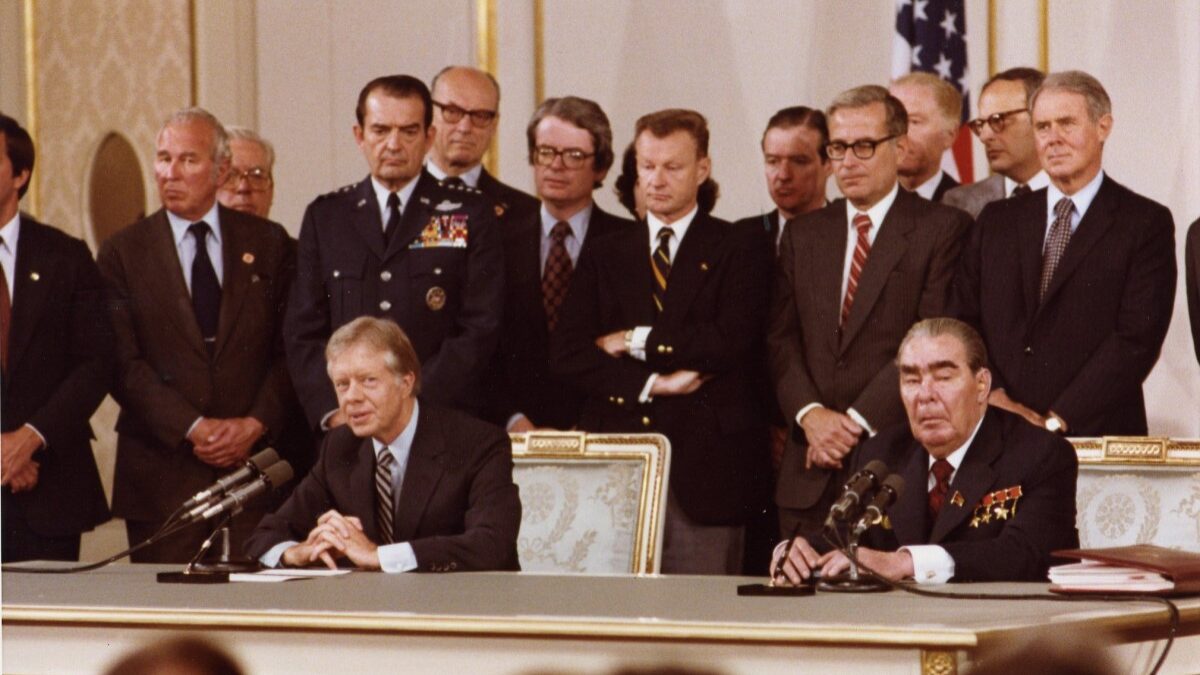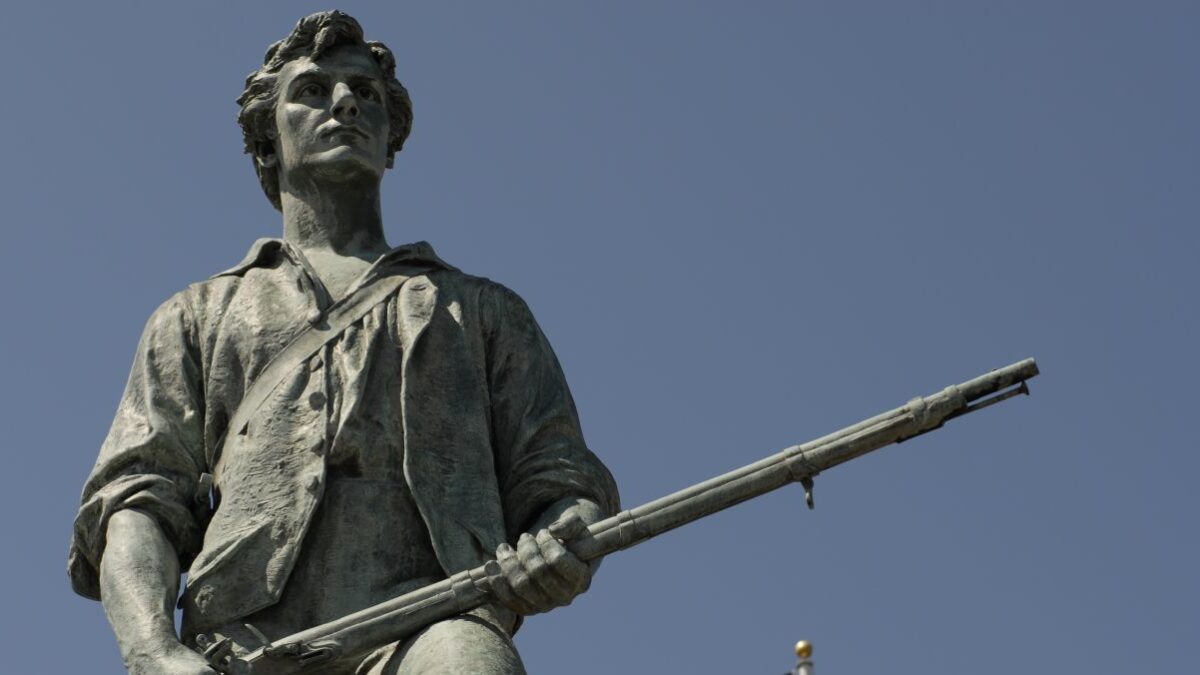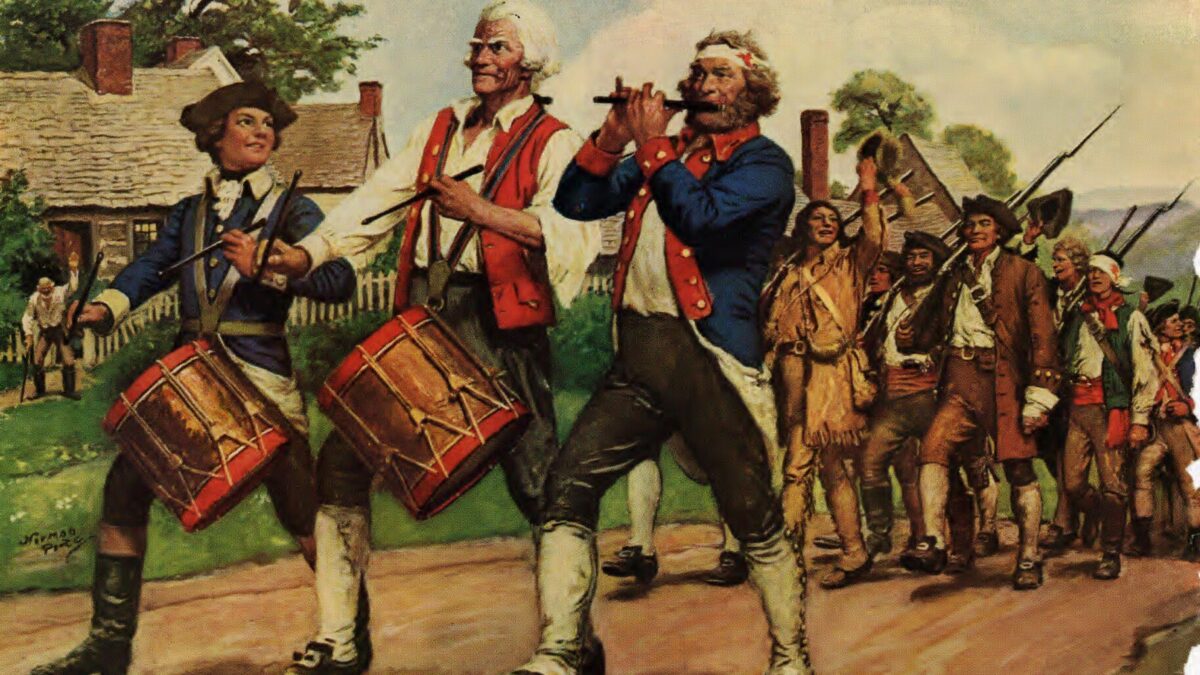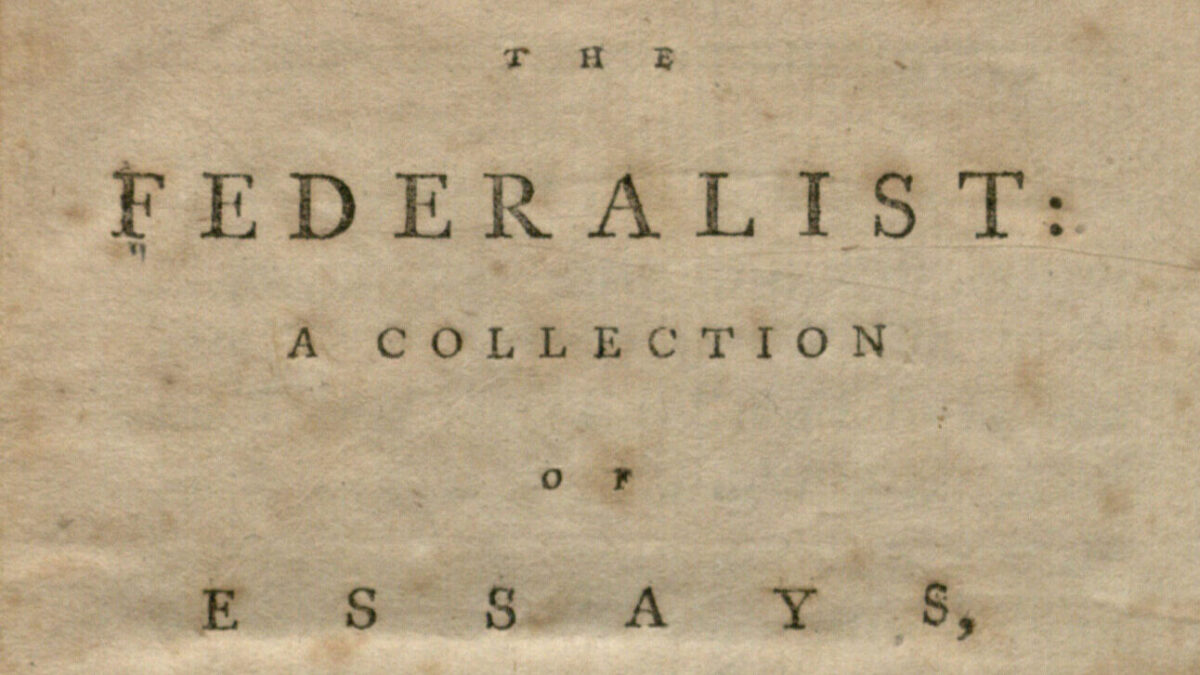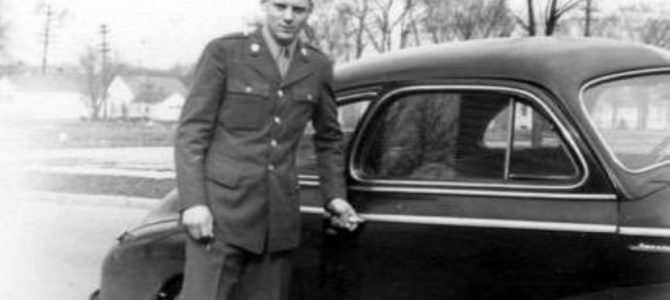
We stopped at the gas station to fill up the car. It was one of our rituals on my monthly visits: a trip to the hardware store, a fill-up.
At 93, although my dad walked with difficulty, he was determined to pay for gas. He slowly pushed himself out of the front passenger seat, held onto the car for support, and used his cane to steady his movement. Now rail-thin and shuffling his steps, my dad nevertheless kept himself well-groomed in his familiar attire of khaki pants, a buttoned shirt, a jacket, and his World War II Veteran cap.
As we fumbled with the gas pump, a young man walked up to us. “Let me pay for it,” he said. “Not often I can do something for a World War II veteran. Thank you for your service, sir.” Since we’re Midwesterners at heart and not ones to take advantage of someone’s kind deed, we only put a few gallons in. We were deeply touched.
I think about that act of kindness — just one among many my dad’s hat solicited — as we joined the ranks of the hundreds of thousands of families who’ve now lost a World War II veteran. An astounding 16 million Americans fought in World War II. With only approximately 325,000 still living, the Veterans Administration estimates an average of 245 die every day (a figure that’s certainly grown since its pre-COVID calculation).
He donned his World War II Veteran hat for the first time during a Veteran’s Day parade in Jacksonville, Fla. a few years back, shook the governor’s hand, and wore it proudly ever after.
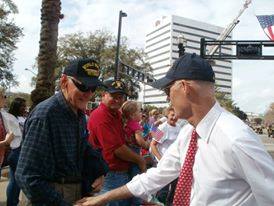
On Dec. 5, two days before the anniversary of the bombing of Pearl Harbor — something he marked every year — my loving father, Paul W. Scheele, lost his last battle. The day after my father’s death, the scripture reading for the second Sunday in Advent recalled the prophet Isaiah’s words of consolation and spoke to my heart.
Comfort, comfort my people, says your God.
Speak tenderly to Jerusalem,
and cry to her
that her warfare is ended,— Isaiah 40:1-2
I went to church that day because that’s what my father would have wanted. He was committed to the Lutheran church of his youth and attended faithfully, even while rehabilitating after his stroke.
When we discovered a small metal box sitting on a high shelf in his closet with a few foreign coins, military ribbons, and some black and white photos of him as an 18-year-old soldier, we realized he had served. But my dad didn’t talk about the war while we were young. It was only in his later years that he opened up — perhaps driven by a sense of pride and patriotism that he had served this great nation, where his German grandfather had immigrated in 1881.
With an October birthday, my father entered the war in November 1944, later than many of his classmates, who fought, and died in the horrid Battle of the Bulge. Sent to Europe with his unit in early 1945, my dad was among the thousands of troops training for an assault on Japan, but the atomic bomb came first.
Much of his overseas war service was after World War II ended, helping reconstruct roads and bridges in war-ravaged Germany — where his mother’s older siblings had been born. Yet, by the time my father reached his 94th birthday on Oct. 4, he had been through more than a few warring times.
When he was three years old, his father died of a burst appendix, leaving my grandmother to raise six children during the Great Depression. My father recalled his father’s body laid out in the front hall of their home surrounded by flowers and remembered taking a little metal toy car and running it along the side of the bench the casket was laid on.
My father was home when the military police arrived to tell his sister that her husband had been killed in battle. Robert C. Wehrenberg, second lieutenant, 45th Infantry Division, 120th Engineer Combat Battalion was killed in action on March 3, 1944, also leaving behind a two-year-old son.
When my father returned from serving overseas in Germany, he married his high school sweetheart and enrolled in engineering at Purdue University, where he was president of the Student Union and elected to honor societies. Following the footsteps of grandfather Wermuth, my dad had a successful career in construction and he and my mother eventually retired to Florida. There, he dug into backyard gardening with gusto, raising daylilies, amaryllis, and growing citrus and vegetables in tubs.
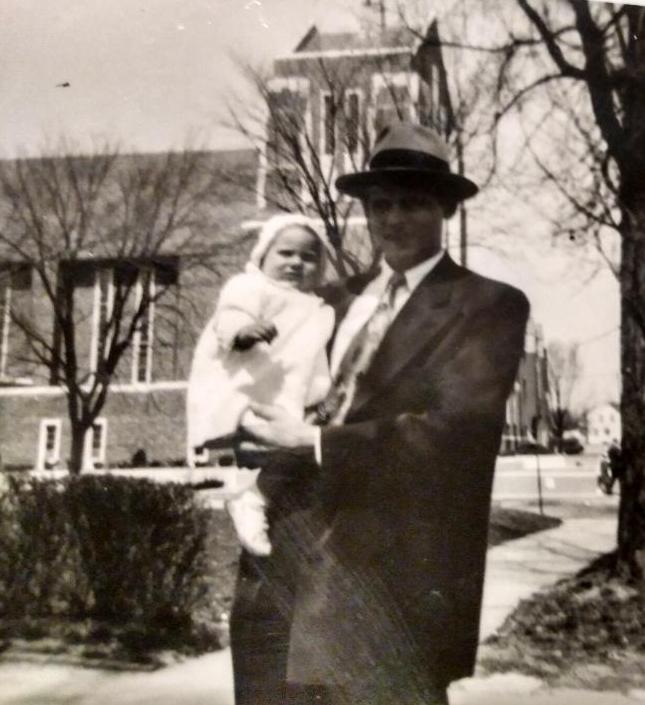
The last five years of my father’s life were a string of battles that seemed to crash into one another. He required surgery for skin cancer from working long hours of construction for his uncle. He suffered a debilitating stroke followed by a long rehabilitation and less than total recovery. Stage-four lung cancer necessitated surgery and treatment. An undiagnosed heart condition — caused by scarlet fever as a child — nearly cost him his life. All this followed by another heart surgery, and finally, bladder cancer surgery.
Then this spring, he was hit with a series of strokes, each causing more neurological damage and all falling behind the horrible veil of COVID-19. My last visit with my dad — still wearing his World War II cap — was the day after Thanksgiving. My mom and I sat on one side of a plastic curtain streaked with disinfectant and my dad on the other, dealing with his spouts of confusion.
The holidays are a hard time to lose a loved one. Hundreds of articles offer advice on how to mourn and grieve, with many suggesting creating new traditions, honoring your loved one, and taking care of yourself. I found some relief in stringing lights on several of my dad’s old tomato cages — besides his gardening, he loved Christmas lights. He loved music, too, so I thought of him while singing and playing the carols of Christmas.
As sad as this time is, I dread more the month of January. No more twinkling lights on tomato cages and no more winsome carols. The memorial service will be held at his beloved church, with enough liturgy, language, and song to honor his faith and ours. Then the burial at the National Cemetery, with military honors — taps and a folded flag, followed by a soft shoveling of dark earth.
Cloudfilled skies and the endless slog through colorless days will follow, with little relief from his relentless absence and the heartbreaking silence. But at least for my father, there is sweet comfort: The war has ended. Rest in peace, papa.


